Michael Jackson Impersonator Was Schizophrenic, ‘Likely Experiencing a Psychotic Episode,’ When Marine Put Him in Chokehold, Jury Hears
The defense also elicited testimony that Jordan Neely, the Michael Jackson impersonator, was a heavy user of synthetic marijuana, or K2, which can cause psychosis.

Defense attorneys in the trial of Daniel Penny, the Marine veteran who put a Michael Jackson impersonator, Jordan Neely, in a fatal chokehold on a New York City subway last year, called more witnesses on Tuesday, including Mr. Penny’s mother, two of his platoon sergeants and an expert, who studied the victim’s medical records.
“I have four children,” the defendant’s mother, Gina Flaim-Penny, testified. “Three daughters and Daniel Penny.”
Defense attorney, Thomas Kenniff, called his client’s mother to the witness stand to tell the jury about her son. Ms. Flaim-Penny works for the department of education as a teacher’s assistant, she said, and as home nursing aide to a friend’s mother who suffers from dementia. When asked what values she taught her son, she replied, “honesty, humanity and to treat others as you would want to be treated.”
Like Mr. Penny’s sister, who testified on Monday, as the Sun reported, Ms. Flaim-Penny said she was “nervous” when her son enlisted in the Marines at age 18, after he finished high school. “He has a very soft side to him,” she said. He had originally applied to the United States Naval Academy in Annapolis, Maryland, she explained, but did not get accepted, so he joined the Marine Corps. “It was a dream of his,” she added.
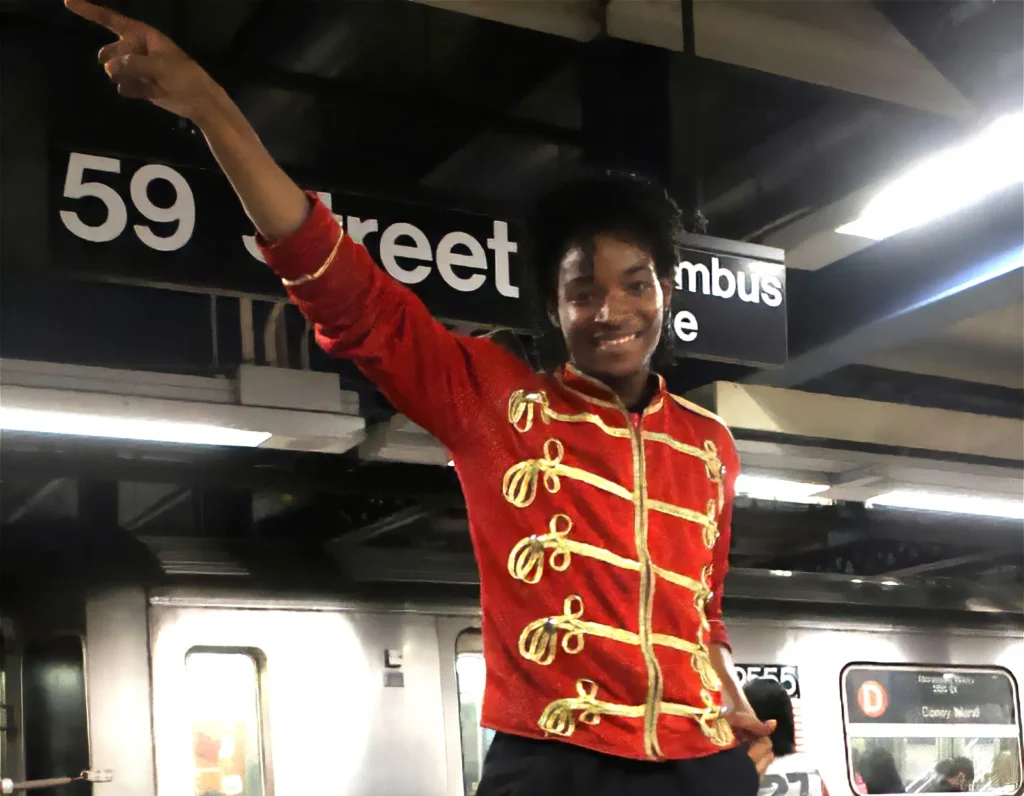
Mr. Penny, 26, is charged with second-degree manslaughter and negligent homicide in the death of Neely, a street performer who was 30 years old and homeless when he died. The racially charged case – Mr. Penny is white and Neely was Black – has been the cause of outraged protests by social justice advocates demanding Mr. Penny be convicted for Neely’s death. Mr. Penny has also had demonstrations in his support, has received public words of support from Elon Musk, and an online fundraiser raised more than $3 million for his defense.
The Manhattan district attorney, Alvin Bragg, alleges that Mr. Penny acted recklessly when he held Neely in a chokehold for almost six minutes on the floor of a subway car on May 1, 2023. Neely was unresponsive when officers arrived at the scene, and was pronounced dead at the hospital about an hour later.
Mr. Penny, who has pleaded not guilty to the charges, told police officers he tried to protect himself and fellow subway riders from what he deemed to be an unpredictably dangerous man on the train, when he placed him in the chokehold, and that he held on because Neely was “squirming” and trying to break free. Neely had boarded the train and acted erratically, shouting at passengers he was hungry, thirsty, and ready to die. Several witnesses testified that the tone of his voice was frightening and that he was more menacing than other mentally ill homeless people whom they had encountered on the subway system. One passenger said Neely made her fear for her life.
The prosecution argues that Neely did not physically attack anyone, did not carry a weapon, and that Mr. Penny used excessive force. Having been trained in the Marines, prosecutors say, he should have known chokeholds can be lethal when pressure is applied for too long. If convicted, Mr. Penny faces a maximum of 19 years in prison.

Before his mother took the stand, the defense had called two of Mr. Penny’s platoon sergeants, who both testified that Mr. Penny was awarded a humanitarian service medal for his relief efforts after hurricane Florence made landfall in North Carolina in 2018, causing 54 deaths in four states.
“Did Penny have a reputation of integrity and honesty?” Mr. Kenniff asked Gunnery Sergeant Nathaniel Dunchie.
“Yes,” Mr. Dunchie replied. “When I had him under my charge he was my team leader… I’d give him a task and I know it’s gonna be completed, I know it’s gonna be done right.”
Another sergeant, Nolan Drylie, told the jury that serving in the same platoon creates a strong bond between the Marines, “You’re closer to them than to your family,” he said. “You’re in a sleeping bag with these guys for weeks on end.” He said that there is a “brotherhood” in the Marine Corps that lasts well beyond the years of service.
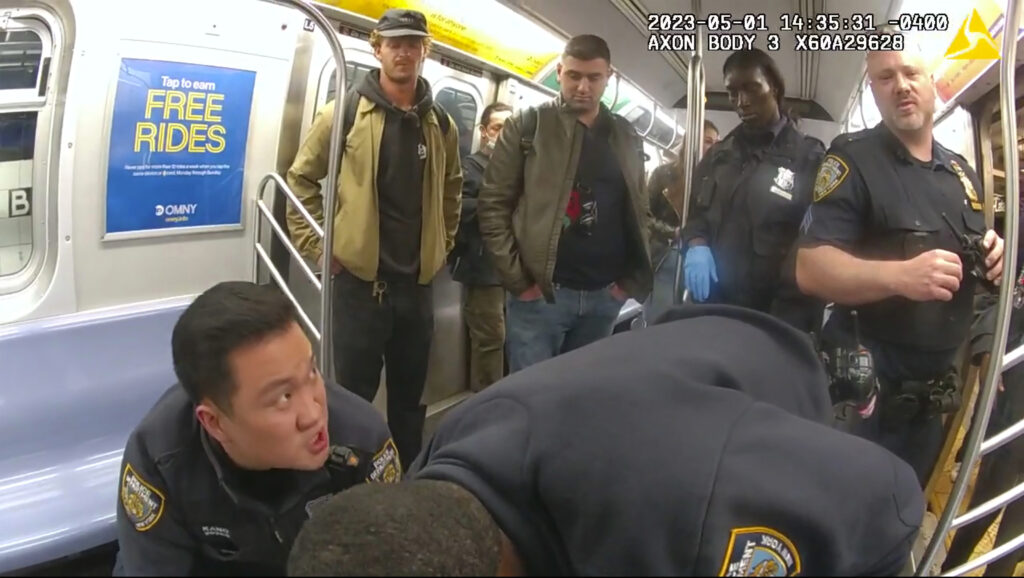
When assistant district attorney, Dafna Yoran, cross-examined Mr. Drylie, she asked him about a Facebook post he wrote on May 24, 2023, roughly two weeks after Mr. Penny had been charged. Mr. Drylie, she cited, had called on “all his brothers” to ride to New York on their motorcycles and “protect a brother” whom he described as “just a good f– dude.” He also wrote, “if you have a negative opinion unfollow me. Violence begets violence.”
When Ms. Yoran began asking about another post, where Sergeant Drylie called for men to be “toxically masculine” again, the defense objected and the judge stopped her line of questioning.
The defense called a pilot, Steven Strachan, who moved from California to Suffolk County on eastern Long Island and bought a house there. He met Mr. Penny at the beach.
“We exchanged phone numbers and became friends,” Mr. Strachan testified. “At the age of 33, it is very difficult to make friends.”
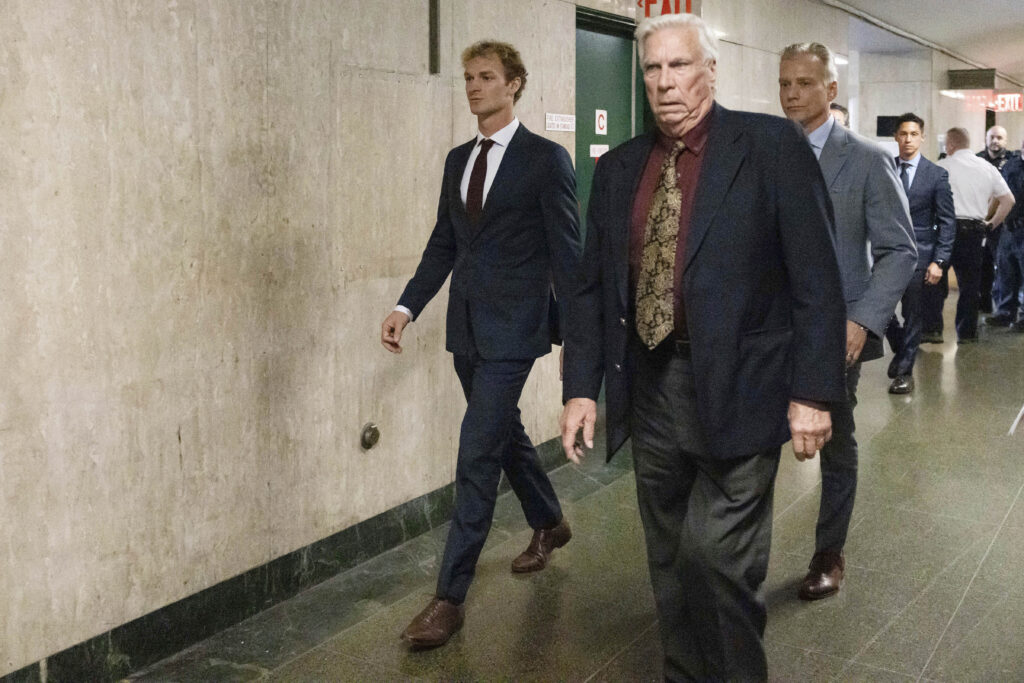
He said that Mr. Penny helped him renovate his house and introduced him to the surfing crowd on Long Island, and because of that introduction, Mr. Strachan no longer feels like an outsider anymore.
The defense established the good character of Mr. Penny, a helpful friend, a man who served his country and also a man, who is soft-spoken, who played the bass in two classical orchestras, and who loves to surf and to be by the water. There was no mention of any aggression.
Then the defense called the forensic psychiatrist, Alexander Sasha Bardey, to the stand. Dr. Bardey studied almost five thousand pages of Neely’s psychiatric records, stemming from dozens of hospitalizations. The doctor said he compiled a summary of 50 pages, which the defense entered as evidence.
The doctor never personally met Neely, but based on the records, he said Neely was diagnosed with schizophrenia and frequently used the synthetic cannabinoid K2, also known as spice. K2 has been known to cause acute psychoses in some users.
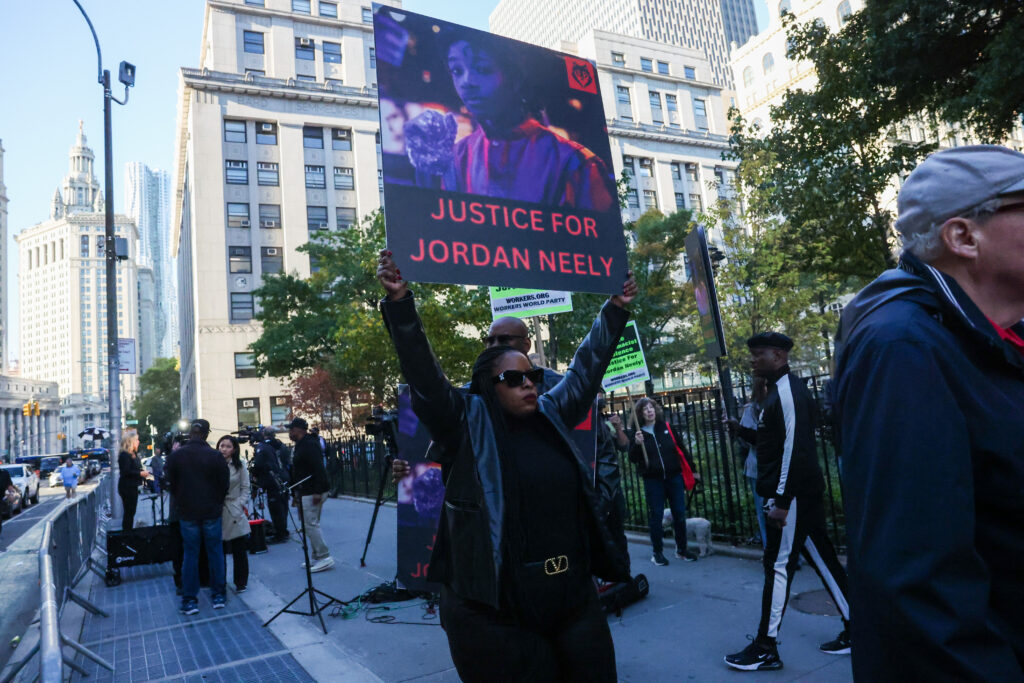
“I would classify his condition and symptoms as severe based on his history,” the doctor testified about Neely, saying he found descriptions of delusional thinking and paranoias such as that people wanted to hurt him.
One of the reports, Dr. Bardey testified, stated that after smoking K2, Neely said, “he hears the devil’s voice,” and that the murdered rapper “Tupac Shakur had instructed him to change the world and that’s what he was doing.”
Another report from August 2015, the Sun read in the 50 page document, stated, “On exam patient is internally preoccupied, paranoid with concrete and illogical thought process, thought blocked and disheveled. His presentation is most likely due to an exacerbation of schizophrenia in the setting of substance use and/or medical noncompliance. The patient is unable to care for self due to disorganization and prominent negative symptoms.”
The doctor concluded that Neely was “likely experiencing a psychotic episode” when he boarded the train on that tragic day in May 2023.
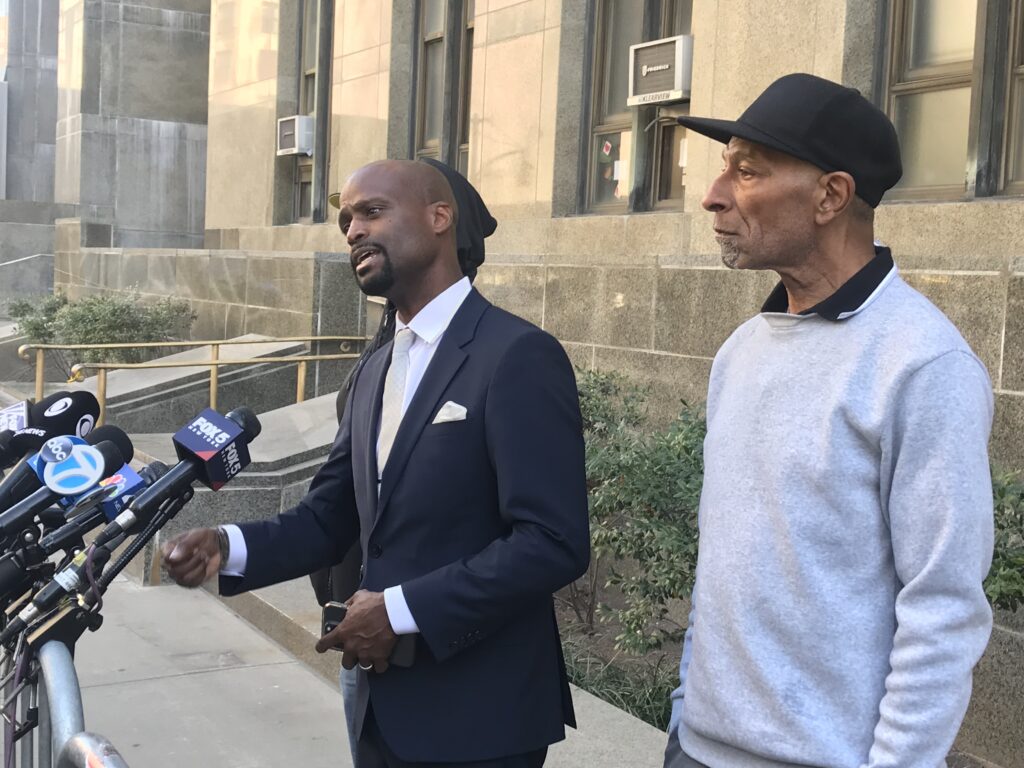
The prosecution did not cross-examine the expert. Outside the courthouse Neely’s uncle, Christopher Neely, told reporters that he felt the defense was trying to “demonize my nephew” but that he understood why the prosecution did not cross-examine the doctor,
“It actually is just a waste of time,” Mr. Neely said, “it’s just cut and clear. The video shows it. It’s not what happened in the past. It’s what happened now. You know what I’m saying?”
Mr. Neely describes his nephew as a “great dancer,” who sadly “lost his mother at the age of fourteen… to a violent murder by her boyfriend… and that broke his heart.”
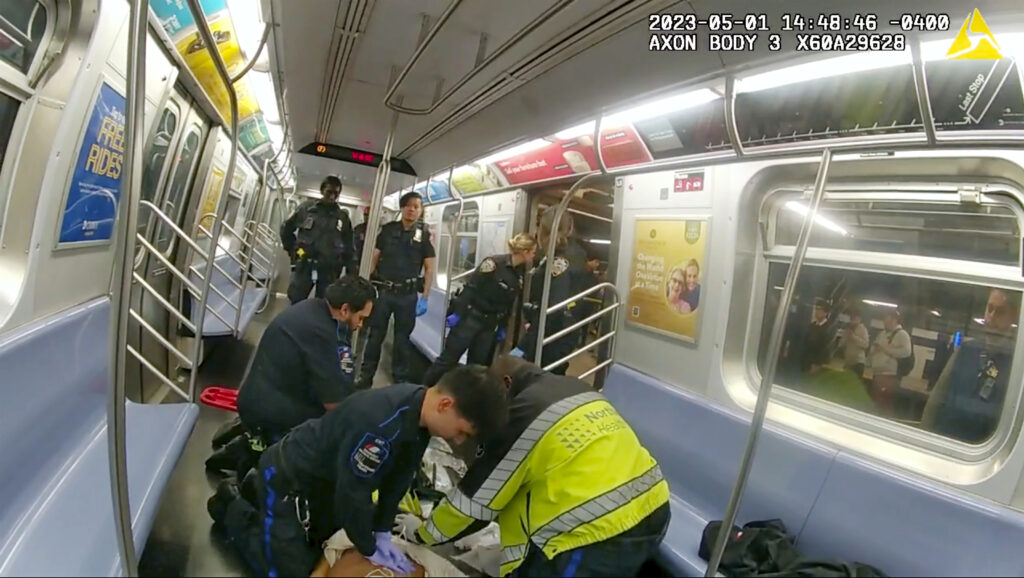
Reverend Ronald McHenry, who has been supporting Neely’s family throughout the trial, and is a coordinator for the National Action Network NYC, which was founded by Al Sharpton, told the Sun earlier in the day in a statement that Neely “had a smile that could light up a room” and that “his favorite meal was turkey burgers and fries, and he was a high school graduate who excelled as a student.”
“As we were watching the defense today talk about the mental health of Jordan Neely,” the reverend told reporters outside the courthouse, standing next to Neely’s uncle, “I cannot just think about the mental health of Daniel Penny. What will cause a man on a train to jump up because another man said, I need help? There’s no reason why Daniel Penny put his arms around Jordan Neely’s neck. Jordan Neal did not die because of mental illness. Jordan Neely did not die because of medication taken and not taken. Jordan Neely didn’t die from the intake of K2. He died because two men held him down and one had an arm around his throat. That’s why he died.”
There is no court on Wednesday. The defense will call more witnesses on Thursday and could possibly rest its case by Friday.

